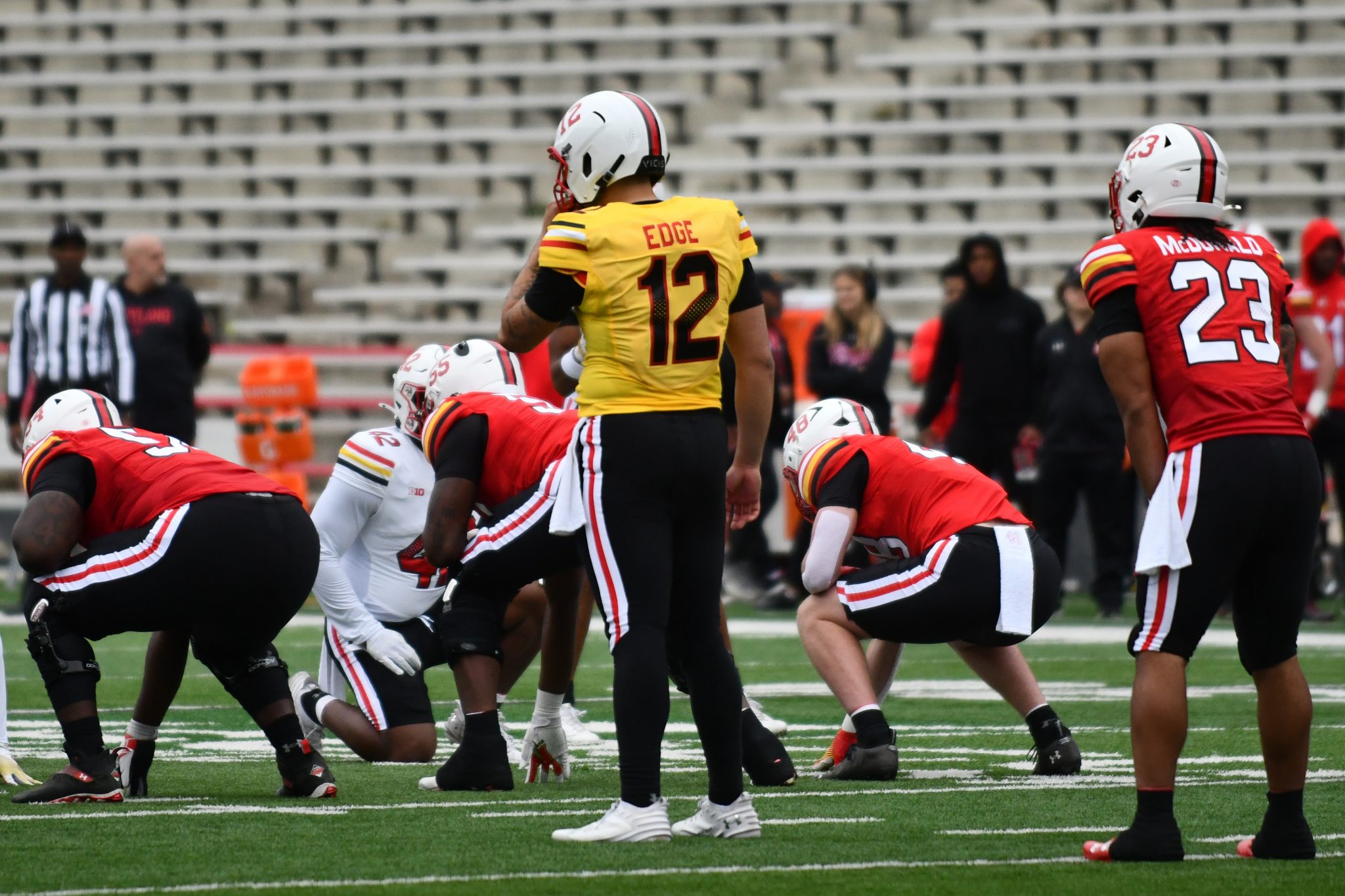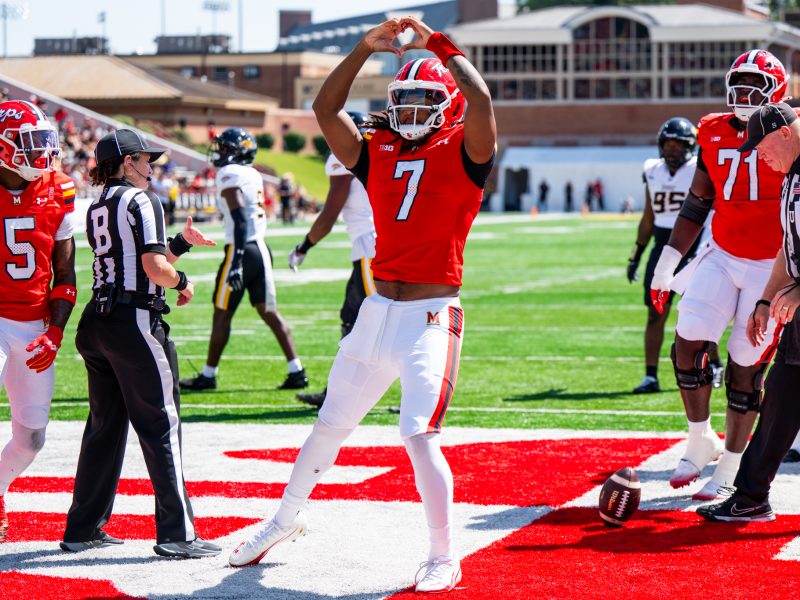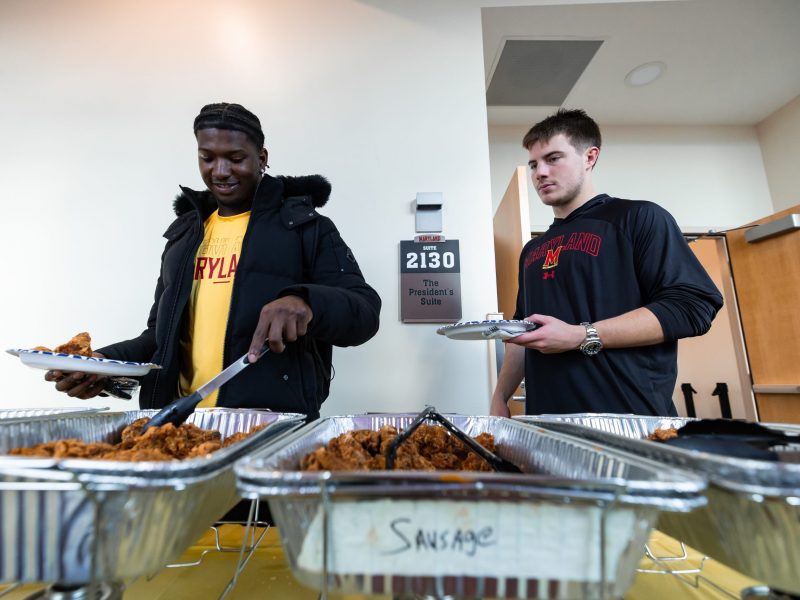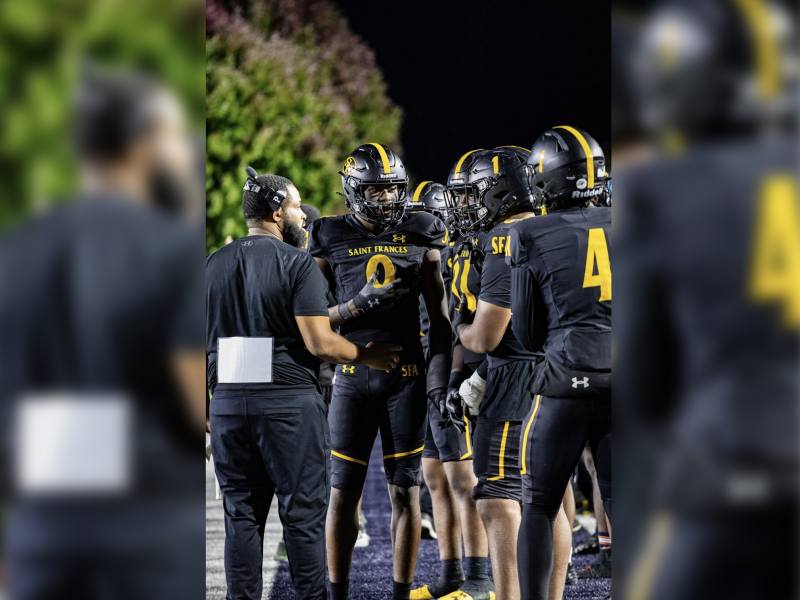If everything goes according to plan, they rarely see the field. They wait on the sidelines, yet are supposed to be prepared to play at a moment’s notice. It’s a position that’s often overlooked — until it becomes the most crucial one on the team.
A backup quarterback is a thankless job in today’s era of college football, leaving many to look for new destinations. Twenty-three quarterbacks have transferred from Big Ten schools since 2021.
College backup quarterbacks’ roles have significantly evolved since the implementation of the transfer portal in 2018, impacting their daily and long-term developmental approaches.
“That’s what a backup quarterback does, he prepares for the opportunity that you isn’t guaranteed,” coach Michael Locksley said. “The landscape of college athletics is different because they do have this ability [to transfer].”
Maryland experienced the reality of that this week, when sophomore quarterback Cameron Edge announced his intention to enter the transfer portal. Edge announced his decision to leave the Terps in the middle of the season, despite the portal window not opening until Dec. 9.
The move would’ve been criticized ten years ago — today, it’s widely accepted as a business decision. Edge, who shared a statement on social media, didn’t have any further comments.
“Things don’t happen the way you want them to happen. And sometimes you spike through it, and you keep persevering, and sometimes you reset and figure out, maybe this ain’t the place,” Locksley said.
[Inside Maryland football’s analytically-driven strength and conditioning program]
More than 60 percent of starting quarterbacks on power conference teams in 2024 transferred to their current school. Billy Edwards Jr. spent his freshman year at Wake Forest before coming to Maryland.
Edwards has a unique perspective, having sat behind Taulia Tagovailoa for two seasons. He is one of only four quarterbacks in the Big Ten who sat on the bench for multiple seasons before becoming a starter. He’s a rarity in this transient era of college football.
“It definitely is tough [being a backup],” Edwards said. “And the nature of college football nowadays with the portal … you get put in those situations where you gotta do what’s best for you.”
Champ Long, one of Maryland’s backup quarterbacks, said one of his main responsibilities during the week is to prepare Edwards. Long might ask multiple questions during meetings, or quiz the starting quarterback on a particular concept.
Long doesn’t frequently talk with Edwards on gameday, though, leaving that responsibility to the Terps’ coaching staff. He’s focused on taking mental reps, envisioning himself on the field during a play.
“You see the play as you’re going over the play, you get it into the line … you see how it’s ran,” Long said. “Then when you go back to that same play, I already took the rep on the side.”
[Maryland football commit Delmar White shines beyond the field]
Those mental exercises are critical for backups, especially because they don’t receive many practice reps during a game week. That lack of involvement can create apathy..
“It’s very easy to just get down on yourself. It’s very easy to become disinterested, to not care anymore,” Aaron Campbell, quarterbacks coach for Under Armour Football, said..
Campbell said he’s worked with close to a hundred college quarterbacks. He’s aware of how the portal has changed athletes’ attitudes about what they prioritize.
Quarterbacks are more prone to leave a situation early, Campbell said. A highly-touted quarterback isn’t used to sitting on the sidelines, which is discomforting and sometimes leads to rash decisions.
But it also can help athletes find better situations — Edwards is proof of that. Two of the country’s top quarterbacks this season, Miami’s Cam Ward and Colorado’s Shedeur Sanders, both transferred to their current schools.
“So far it’s played out almost to a T of how I wanted it to,” Edwards said.
Being a backup college quarterback isn’t an easy role. It’s mentally taxing, grueling and tests a player’s confidence and sense of complacency. But no matter how college football has changed, there’s always a need for a No. 2 quarterback.
“The most important person on the team is the head coach. Next is the starting quarterback, and the third most important person is the backup quarterback,” Campbell said.



